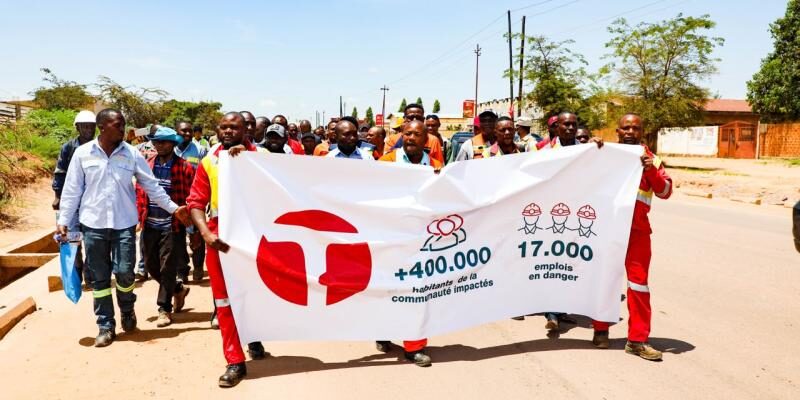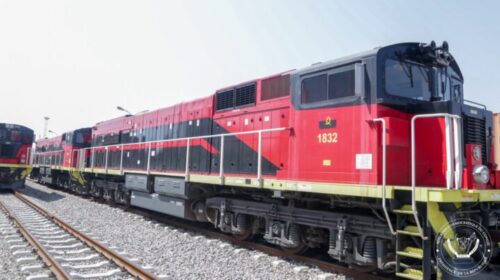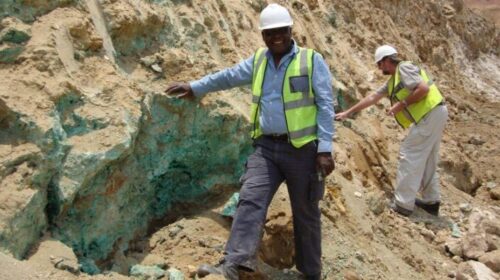TFM Miners call Kinshasa for Responsibility
While the conflict between the Congolese State and the Chinese group CMOC seems to be at an impasse, the inter-union of the mining site held a press conference on Tuesday to ask the government to lift restrictions on cobalt exports.
A matter of life or death for this huge industrial site, which sustains an entire region and contributes greatly to local and national public finances in the DRC.
Will cobalt ever again be exported from the Tenke Fungurume Mining (TFM) mine? The mining site, located in the province of Lualaba, in the extreme south of the Democratic Republic of Congo (DRC), has been shut down since the middle of July 2022. More specifically, these are exports from the Congolese mine which have, in fact, been interrupted for eight months.
Several tens of thousands of tons of copper and cobalt, with an estimated value of more than 1.5 billion dollars, have therefore piled up on the site since this period.
While the inter-union had, Tuesday, March 7, summoned the media for a press conference organized on the spot, return on a conflict which goes beyond, by far, the only mining and industrial stakes of the actors in the running.
The origins of the conflict
The crisis therefore began last summer, when the Congolese authorities who, via the public company Gécamines, hold 20% of TFM (the remaining 80% belonging to the Chinese group CMOC, which operates the mine), declared that they suspected the industrialist for knowingly underestimating TFM’s reserves in order to reduce the royalties due to Gécamines.
Serious accusations, immediately denied by the Chinese company. Although CMOC claims to be continuing its operations normally on the TFM site, mineral exports have indeed come to a complete halt since mid-July and no one seems to know, at present, when they will be able to resume, or even if they will ever resume.
The huge TFM mine is therefore not formally at a standstill, but a heavy atmosphere hovers over the Lualaba region and its inhabitants.
Without the possibility of exporting the cobalt and copper extracted from the Congolese subsoil, CMOC in fact swallows up colossal sums in the maintenance and daily operation of the TFM installations.
If no way out is quickly found, the group could simply announce the cessation of its activities in the DRC, and put the key under the door of the second largest cobalt mine in the world.
While waiting for a hypothetical resumption of exports, the warning signals are multiplying: planned for a long time, the expansion site of the TFM site was thus officially put on hold on Monday March 6 – the first of a long list of aborted projects?
An invaluable site for the Congolese economy and society
Because TFM is not just one mine among others. Outstanding, the site employs no less than 17,000 employees and subcontractors, 90% of whom are of Congolese origin – and this without counting the countless SMEs, craftsmen and entrepreneurs whose activity is based more or less directly on the mine.
So many citizens – and their families – that a permanent closure of TFM would plunge into precariousness. While CMOC’s financial support has so far enabled TFM to continue to pay its employees, there is no indication that the group can indefinitely ensure the financial survival of an entire pool of jobs.
The Chinese company has already resolved to suspend several community infrastructure projects benefiting the entire population: the school,
Deleterious at the local and regional level, the suspension of TFM’s activities also has serious consequences for the whole country. At the end of the first three quarters of 2022, TFM has thus paid the equivalent of 924 million dollars in taxes and duties, contributing, for example, to more than a third (35%) of the revenue of the province of Lualaba alone.
And, since the beginning of the conflict between TFM and Gécamines, the town of Fungurume, which adjoins the mine, has reportedly seen a 90% drop in its development projects, while proving unable to pay its own civil servants.
In other words, the continuation of the conflict could sign the death warrant of an entire region and precipitate its tens of thousands of inhabitants into a historic socio-economic cataclysm.
The inter-union steps up to the plate
It is to warn about this situation, which they neither wanted nor provoked, that the TFM unions held an unprecedented press conference on Tuesday, March 7. Meeting in Kolwezi, the inter-union solemnly called on the Congolese government to immediately lift the restrictions on exports.
Denouncing what, according to him, looks like a real “hostage-taking”, the head of the trade union delegation urged the DRC authorities to hear the fear and “great distress” of the TFM workers: “our appeal using today is (…) that of the last chance”, again launched the union leader, who considered that the employees of the mine and their families were “the main victims of this story”.
And the miners to remind the leaders of Kinshasa, the distant capital of the DRC, their promise to concern themselves with the fate of all the inhabitants of the country, whatever their region of origin. Will the call be heard?
73 total views , 1 views today





